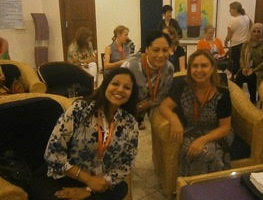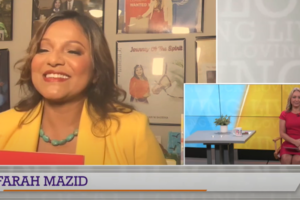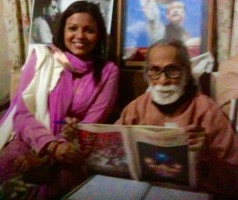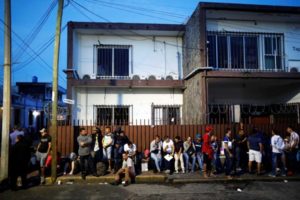The UN’s top humanitarian official arrived in Saudi Arabia on Sunday for ceasefire talks between Sudan’s warring generals, as gun battles and air strikes flared in the Sudanese capital at the start of a fourth week of fighting.
Multiple truce deals have been declared and quickly violated since battles erupted between army and paramilitary forces on April 15 in the poverty-stricken country with a history of political instability.
Fierce combat since then has killed hundreds of people, most of them civilians, wounded thousands and sparked multiple warnings of a potential ‘catastrophic’ humanitarian crisis.
More than 1,00,000 people have already fled the country.
In embattled Khartoum, fighter jets have bombed positions as terrified residents stay barricaded indoors trying to cope with dire shortages of water, food, medicines and other staples.
Related Coverage:
› Air raids batter Sudan capital ahead of talks
› Sudan’s generals ‘should have been dealt with as war criminals’
› ‘Protracted’ conflict warned as Sudan fighting rages
Across the Red Sea in the Saudi city of Jeddah, talks were underway aiming for a ceasefire that could push efforts to bring humanitarian aid to the besieged population.
The generals leading the warring parties have said little about the talks being held in Jeddah since Saturday.
Army spokesman Brigadier General Nabil Abdalla said the talks were on how a truce ‘can be correctly implemented to serve the humanitarian side’, while Mohamed Hamdan Daglo, who heads the Rapid Support Forces, only said on Twitter that he welcomed the technical discussions.
The UN’s top humanitarian official, Martin Griffiths, was in Jeddah Sunday ‘and the purpose of his visit is to engage in humanitarian issues related to Sudan,’ spokesperson Eri Kaneko said.
Griffiths was last week in Port Sudan, where he said he had been informed by the UN’s World Food Programme that six trucks bringing aid to the Darfur region had been ‘looted en route’ Wednesday, ‘despite assurances of safety and security’.
He called for security guarantees ‘clearly given by militaries, to protect humanitarian systems to deliver’.
There was no indication that Griffiths would play a direct role in the Saudi discussions about a possible ceasefire.
Riyadh and Washington have supported the ‘pre-negotiation talks’ and urged the belligerents to ‘get actively involved’.
Arab League secretary general Ahmed Aboul Gheit expressed his support Sunday for the ‘indirect negotiations’ in order to prevent ‘an escalation of the current conflict’ into a prolonged war ‘that divides Sudan into warring regions.’
Heavyweights in the pan-Arab bloc are divided on Sudan. Egypt solidly supports the regular army, and the UAE is in favour of the RSF, according to experts.
At the same meeting, Egyptian foreign minister Sameh Shoukry warned of ‘a slide into a worse and more dangerous security situation for Sudan, its people, neighbouring countries and the region’.
Hopes for these and other international efforts to silence the guns have been modest.
‘The lowest common denominator of the international community is a cessation of hostilities,’ said Sudan researcher Aly Verjee at Sweden’s University of Gothenburg. ‘But there is no apparent consensus on what to do beyond that initial objective.’
To be meaningful, Verjee said, any new truce declaration would require a ‘credible process to monitor and verify ceasefire non-compliance’, and mutually agreed ‘consequences in the likely event of ceasefire breaches’.
Both sides continue to push on for military advantage on the ground, in the capital and elsewhere including the long-troubled Darfur region.
Andreas Krieg of King’s College London said that ‘the battle for Khartoum is quickly developing into a war of attrition where both sides have similar capabilities and capacities’.
The army, commanded by General Abdel Fattah al-Burhan, has air power and probably more troops, at around 1,00,000 forces.
But the RSF, which emerged out of the notorious Janjaweed militia accused of war crimes in Darfur region, employs guerrilla tactics that, Krieg said, can make them ‘more agile’.
Both the army and the RSF have sought to present themselves as protectors of democratic values, despite having jointly staged Sudan’s latest coup in 2021, derailing a transition to democracy.
The military had ousted Sudan’s longtime autocrat Omar al-Bashir in a 2019 palace coup, following mass pro-democracy protests.
Since their 2021 coup, Burhan and Daglo have fallen out in a bitter power struggle, lastly over a plan to integrate the RSF into the army.
US intelligence chief Avril Haines has warned of a ‘protracted’ conflict that would ‘create a greater potential for spillover challenges in the region’.
At least 700 people have been killed in the fighting so far, according to the Armed Conflict Location and Event Data Project. The Sudanese doctors’ union said 479 of the dead were civilians.
Hundreds of thousands have been displaced either internally or to neighbouring countries, while the UN has warned of a deepening humanitarian crisis and the threat of famine.






















